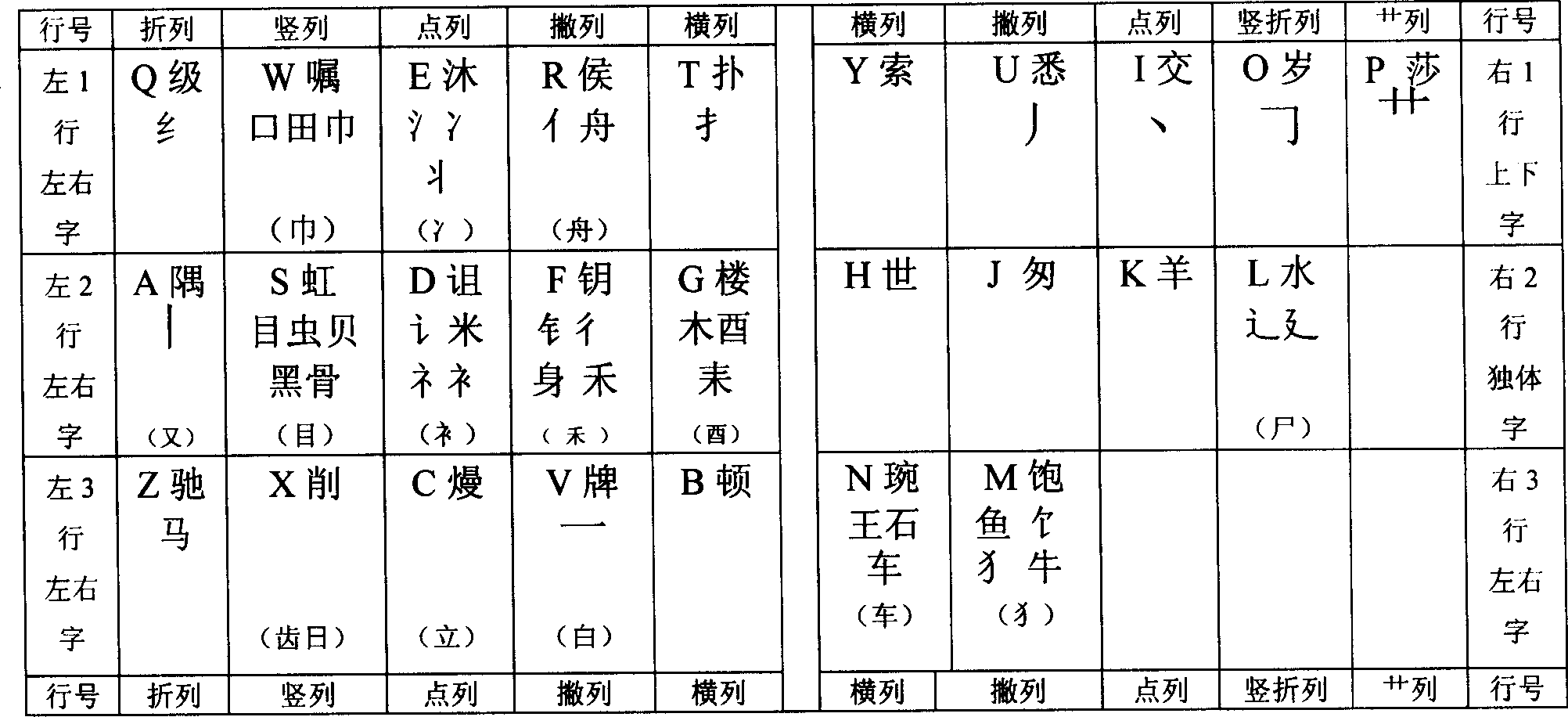Position-shape-sound Chinese character coding and computer keyboard layout method
A computer keyboard, Chinese character encoding technology, applied in the direction of electrical digital data processing, instruments, data processing input/output process, etc., can solve the problems of large memory, difficult splitting, slow input and so on
- Summary
- Abstract
- Description
- Claims
- Application Information
AI Technical Summary
Problems solved by technology
Method used
Image
Examples
Embodiment 1
[0074] Embodiment 1: the font bit code of " bi " is " Y ", and word phonetic code is " B ", and the phonetic code of word " white ", " stone " is respectively " B ", " S ", the position of " bi " in the word The phonetic Chinese characters are coded as "YBBS".
Embodiment 2
[0075] Embodiment 2: the font bit code of " arch " is " T ", and word phonetic code is " G ", and word (or radical) in word The phonetic sign indicating number of " eight " is respectively " G ", " B ", and the Chinese character coding of the place-shaped sound of " arch " is " TGGB ".
Embodiment 3
[0076] Embodiment 3: the font bit code of " medium " is " A ", and word sound code is " M ", and the sound code of word " sweet ", " wood " in word is respectively " G ", " M ", the position of " medium " The phonetic Chinese character code is "AMGM".
PUM
 Login to View More
Login to View More Abstract
Description
Claims
Application Information
 Login to View More
Login to View More - R&D
- Intellectual Property
- Life Sciences
- Materials
- Tech Scout
- Unparalleled Data Quality
- Higher Quality Content
- 60% Fewer Hallucinations
Browse by: Latest US Patents, China's latest patents, Technical Efficacy Thesaurus, Application Domain, Technology Topic, Popular Technical Reports.
© 2025 PatSnap. All rights reserved.Legal|Privacy policy|Modern Slavery Act Transparency Statement|Sitemap|About US| Contact US: help@patsnap.com

